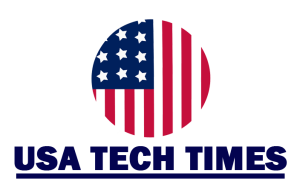
Accounting automation challenges many users, involving diverse tasks such as calculating, generating invoices, bookkeeping, and procurement. A solid familiarity with accounting is crucial to acquire favorable outcomes in this field. No doubt, human error is an unavoidable factor and requires the implementation of automated bookkeeping procedures.
The century of paper-based accounting reports is long gone, with automated bookkeeping now serving as a vital aspect for every organization, including SMBs. Automated bookkeeping software acts as an accounting information system or efficiently records and processes all financial transactions. This technology substantially reduces the potential for errors generated by employees, while delivering convenient access to crucial information in just a few clicks. However, selecting the relevant business accounting software is a laborious task.
What is Automated Bookkeeping?
Using advanced algorithms and machine learning(ML), automated bookkeeping software efficiently automates repetitive accounting tasks. It includes financial reporting, accounting reconciliations, and data entry. The execution of this software results in substantial time savings and a decrease in the potential for errors compelled by manual procedures.
The finest automated bookkeeping services seamlessly incorporate third-party solutions such as ERP systems. It offers a more comprehensive approach to business operations. Recent accounting automation integrates advanced functionalities such as compliance monitoring and fraud detection. These characteristics play a crucial role in securing the credibility of financial data and ensuring compliance with applicable regulations. It provides tranquility and a sense of security.
What are the Challenges of Traditional Accounting?
The challenges linked with traditional or manual accounting involve maintaining financial records by hand using spreadsheets or paper ledgers, which are as follows:
- Time-Intensive
Completing tasks such as reconciliations, data entry, and report generation in traditional accounting consumes significant time. It not only puts a burden on available resources but also has the potential to cause delays in decision-making procedures.
- Error-Prone
Human errors are a prevailing risk in conventional data entry, leading to inaccurate financial statements, non-compliance with regulations, and incorrect reporting.
- Limited Accessibility
Traditional accounting usually stores financial records in physical papers or ledgers, challenging real-time sharing and remote access with others.
- Lack of Scalability
Conventional accounting struggles to accommodate business growth due to its lack of scalability. That’s why accounting tasks become more time-intensive and complicated with time.
- Security Risks
Using physical files in conventional accounting reveals sensitive financial information to different risks such as loss, damage, or theft. This vulnerability highlights the requirement for improved security measures to secure the integrity and confidentiality of the data.
Benefits of Automated Bookkeeping System
Automated bookkeeping tools provide diverse benefits that enhance accuracy, efficiency, and real-time access to financial data. Here is a deeper look at these benefits:
- Improved AccuracyTraditional accounting procedures are absolutely susceptible to human errors, resulting in financial inaccuracies and compliance issues. By embracing automated bookkeeping services, these errors can be immensely reduced. Automated bookkeeping software, such as reconciliations and data entry, guarantees that financial records are complete, accurate, and compliant with regulations. This assists in maintaining the credibility of financial information and eradicates the risks linked with human error in conventional procedures.
- Improved Efficiency
- Better Financial Insights
The Bottomline
Automated bookkeeping ensures that financial records are accurate and compliant with regulations. Increased efficiency permits finance experts to concentrate on more complicated tasks and eventually increase productivity. Real-time access to financial data leverages organizations to make valuable decisions, manage cash flow, identify trends, and make strategic adjustments instantly. Embracing automated bookkeeping software provides organizations with better financial insights, enabling them to navigate the complicated financial management landscape. It streamlines accounting procedures and contributes to overall organizational success by improving financial management, operational efficiency, and decision-making.









